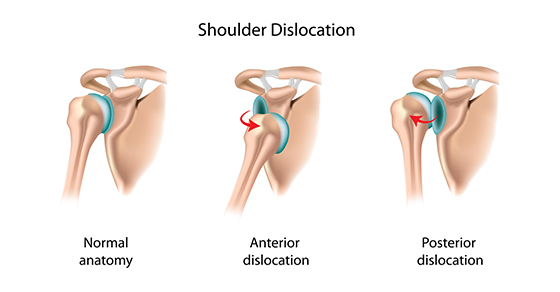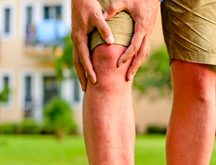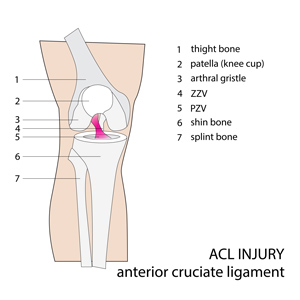Osgood-Schlatter disease
Osgood-Schlatter disease can cause a painful lump below the kneecap in children and adolescents experiencing growth spurts during puberty.
Osgood-Schlatter disease occurs most often in children who participate in sports that involve running, jumping and swift changes of direction — such as soccer, basketball, figure skating and ballet.
Age ranges differ by sex because girls experience puberty earlier than do boys. Osgood-Schlatter disease typically occurs in boys ages 13 to 14 and girls ages 11 to 12. The condition usually resolves on its own, once the child’s bones stop growing.
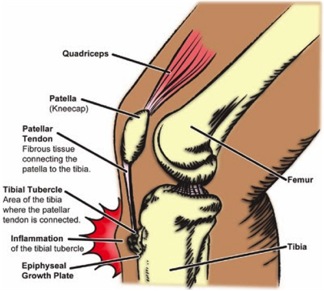
Osgood-Schlatter Disease
SYMPTOMS
Most parents call the doctor after their child complains of intermittent pain over several months. The pain may be anywhere from mild and felt only during activity to severe and constant.
Other symptoms may include:
• pain that worsens with exercise
• relief from pain with rest
• swelling or tenderness under the knee and over the shinbone
• limping after exercise
• tightness of the muscles surrounding the knee (the hamstring and quadriceps muscles)
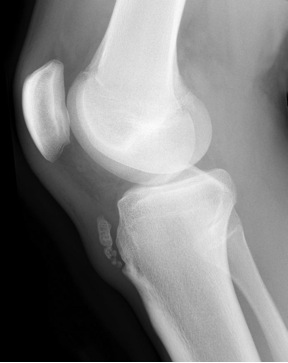
Osgood-Schlatter Disease
Causes
• During activities that involve a lot of running, jumping and bending — such as soccer, basketball, volleyball and ballet —child’s thigh muscles (quadriceps) pull on the tendon that connects the kneecap to the shinbone.
• This repeated stress can cause the tendon to pull away from the shinbone a bit, resulting in the pain and swelling associated with Osgood-Schlatter disease. In some cases, your child’s body may try to close that gap with new bone growth, which can result in a bony lump at that spot.
DIAGNOSIS
• A doctor will perform a physical exam and check your child’s knee for swelling, pain, and redness. This will usually provide the doctor with enough information to make an Osgood-Schlatter disease diagnosis.
• In some cases, the doctor may want to perform a bone X-ray to rule out other potential causes of knee pain.
TREATMENT
Treatment typically involves:
• icing the affected area two to four times a day, or after doing physical activity
• taking over-the-counter pain relievers, such as ibuprofen or acetaminophen
• resting the knee or reducing physical activity
• wrapping the knee or wearing a knee brace
• stretching
• physiotherapy
FREQUENTLY ASKED QUESTIONS
1.What about playing sports and other activities?
Sport or physical activity is not likely to cause any permanent damage, but may make the pain worse. However, it is often sporty teenagers who develop Osgood-Schlatter disease. If the pain is affecting your ability to do your sport, difficult decisions may have to be made about training schedules and sporting commitments.
2.Is it possible to prevent Osgood-Schlatter disease?
Yes, it’s possible to prevent Osgood-Schlatter disease by limiting stress activities involving the knees. Such sports would include basketball, volleyball, ballet, gymnastics, and high jump. All of these sports require sudden explosive activation of the quadriceps muscles. A proper stretching routine involving the quadriceps and hamstring muscle groups may be helpful to arrest the onset of Osgood-Schlatter disease.
3.Is this disease permanent?
Osgood-Schlatter disease usually resolves on its own once a growth spurt ends. Until then, treatment is focused on relieving symptoms, such as knee pain and swelling.
• Overall Osgood-Schlatter disease could be a debilitating condition if it remains untreated. PhysioNow Mississauga has excellent Registered Physiotherapists who can help your child and get him or her back to their sports career. Call Today 289-724-0448.
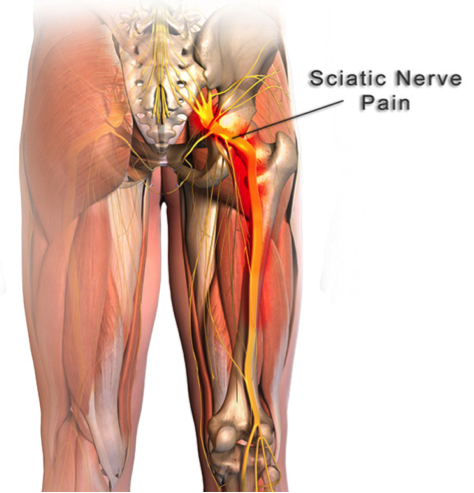
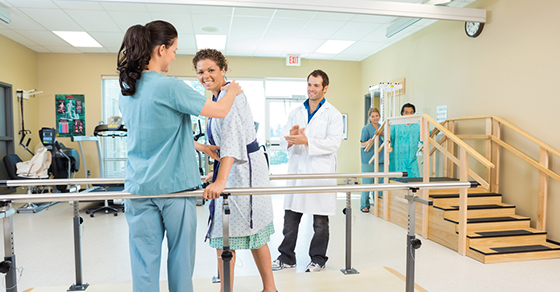
 Female & Male pelvic pain
Female & Male pelvic pain



